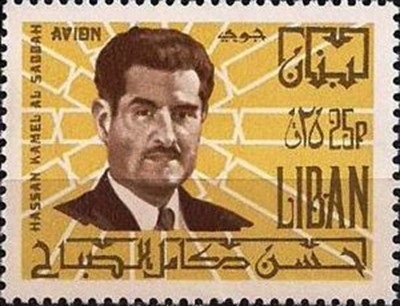
When we think about the great minds who shaped modern technology, names like Edison and Tesla often come to mind. But few people outside Lebanon have heard of Hassan Kamel Al-Sabbah, even though his contributions were just as visionary in many ways. Born in 1895 in Nabatieh, Al-Sabbah was a brilliant engineer and inventor whose ideas were far ahead of his time. He’s often referred to as the “Arab Edison,” and for good reason — he registered dozens of patents in electricity, broadcasting, and solar energy during his short but impactful career.
Al-Sabbah’s journey into the world of science began early. His father, a teacher and religious scholar, pushed him toward education, and it quickly became clear that Hassan had a gift for mathematics and science. After studying at the American University of Beirut, he moved to the United States to pursue engineering, a bold move at the time for someone from a small Lebanese village. Once in the U.S., he joined General Electric (GE), one of the leading tech companies of the early 20th century.
At GE, Al-Sabbah thrived. He worked on everything from power conversion systems to early television technology. It’s easy to forget that back then, these fields were still in their infancy. There were no modern TVs or solar panels yet, but Al-Sabbah was already thinking in those directions. He was especially passionate about solar energy, and long before the climate crisis became a global concern, he was imagining ways to convert sunlight into electricity efficiently.
Throughout his career, he filed over 70 patents, a number that would be impressive even today. These included inventions related to electric motors, broadcasting systems, and various types of electronic control devices. Some of his designs were later refined and used in everyday appliances and technologies, though his name wasn’t always attached to them.
But what made Al-Sabbah truly unique wasn’t just his engineering talent — it was his deep desire to give back to the Arab world. He often expressed frustration that Arab countries were lagging behind scientifically and technologically. He dreamed of building modern research institutions in the Middle East and helping young Arab scientists find their place in the global scientific community. In many ways, he saw science as a tool for independence and empowerment, not just progress.
Sadly, his life was cut short in 1935, when he died in a car accident in New York at just 39 years old. He was still in the prime of his career. While he might not be a household name today, especially outside Lebanon, his impact continues to be felt. In his home country, many schools and streets are named after him, and he’s remembered as a national hero of science and innovation.
As the world continues to grapple with energy challenges and seeks sustainable solutions, it’s striking to realize that someone like Hassan Kamel Al-Sabbah was already thinking about solar power nearly a century ago. His story is a reminder that innovation can come from anywhere — even a quiet town in southern Lebanon, and that sometimes, the greatest minds don’t get the recognition they deserve during their lifetimes.